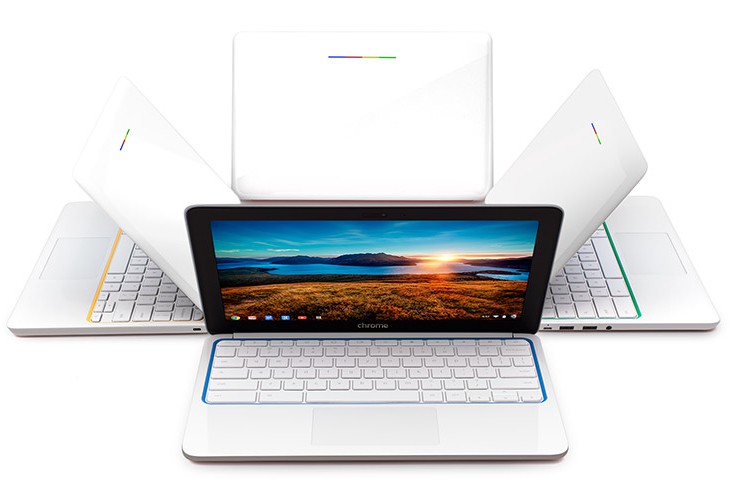
I am working exclusively from a Chromebook -- here's how and why
Despite that I've owned an HP 11 Chromebook since its release, I've viewed it as little more than a novelty. I work from an office on the third floor of my home, which has a nice size desk, desktop PC and 15.6 inch laptop, both running Windows 8.1.
However, as the weather warms (finally!) I considered making the move out to my porch, something I did last summer as well. In that case I lugged the Windows laptop with me, not a difficult task, but the size is really more than I need for carrying around.
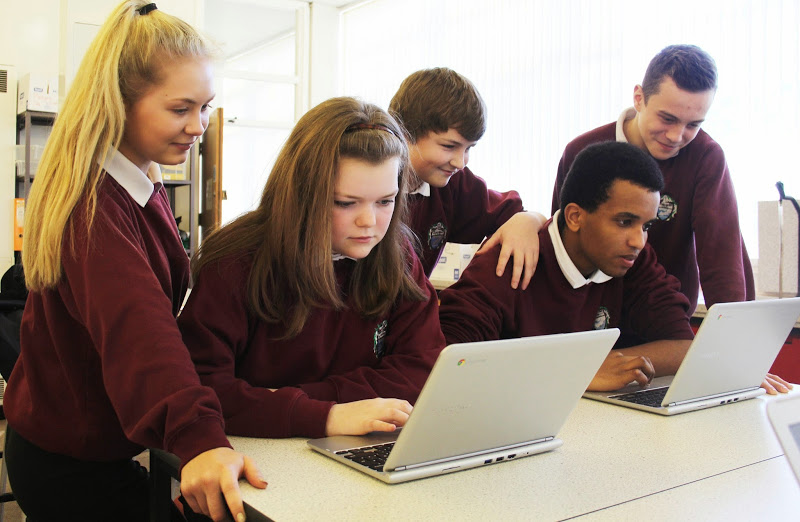
Google invades Wales, gets Chromebooks into schools
Google yn dod i ysgolion Cymru. Google continues to battle Windows and Office 365, trying to get its own products adopted in the market, focusing on education, business and governments. And Chromebooks have made inroads in this area.
Now the search giant announces it has scored a victory in Wales, bringing its platform to schools within the nation. "Around the world, schools are finding innovative ways to use technology to break down the traditional walls of the classroom, while overcoming the challenges of higher academic standards and tighter budgets. Today, we’re pleased to share the stories from two schools in Wales who’ve gone Google to help them meet the demands of a modern-day education system" says Liz Sproat, head of education at Google.

Google-Intel Chrome OS event
In San Francisco, Google and Intel kick off a special event for Chrome OS, which I assert is come of age with the matchup. Ahead of the 1 pm Eastern start time, Lenovo announced new Chromebooks and Google unveiled "Classroom", preview of a new education app.
Unquestionably, Chrome OS-devices are primed for the education market, and many of the newest Chromebooks are directly marketed for schools, students, or teachers. Dell jumped ahead of today's event touting Chromebook 11 adoption in schools.
Chrome OS comes of age
Today's Google-Intel event is a turning point for Chrome OS. The matchup is more magnanimous than Apple shipping the first x86 Macs eight years ago. Intel is after all the other half of Wintel, and the company's coming out for Chrome OS endorses the browser-based operating system as mainstream -- as do a rash of new Chromebooks announced or released over the past month by Acer, Dell, Lenovo, and Samsung.
Chrome OS has huge momentum in the education market, for example. There are news stories about school conversions nearly every week. Those are sales taken away from Apple or Microsoft platforms. Success is shocking, because every new operating system directly competing with Windows has failed since release of version 3.1 two decades ago. The Microsoft monopoly is insurmountable, or was until Google's entrance.
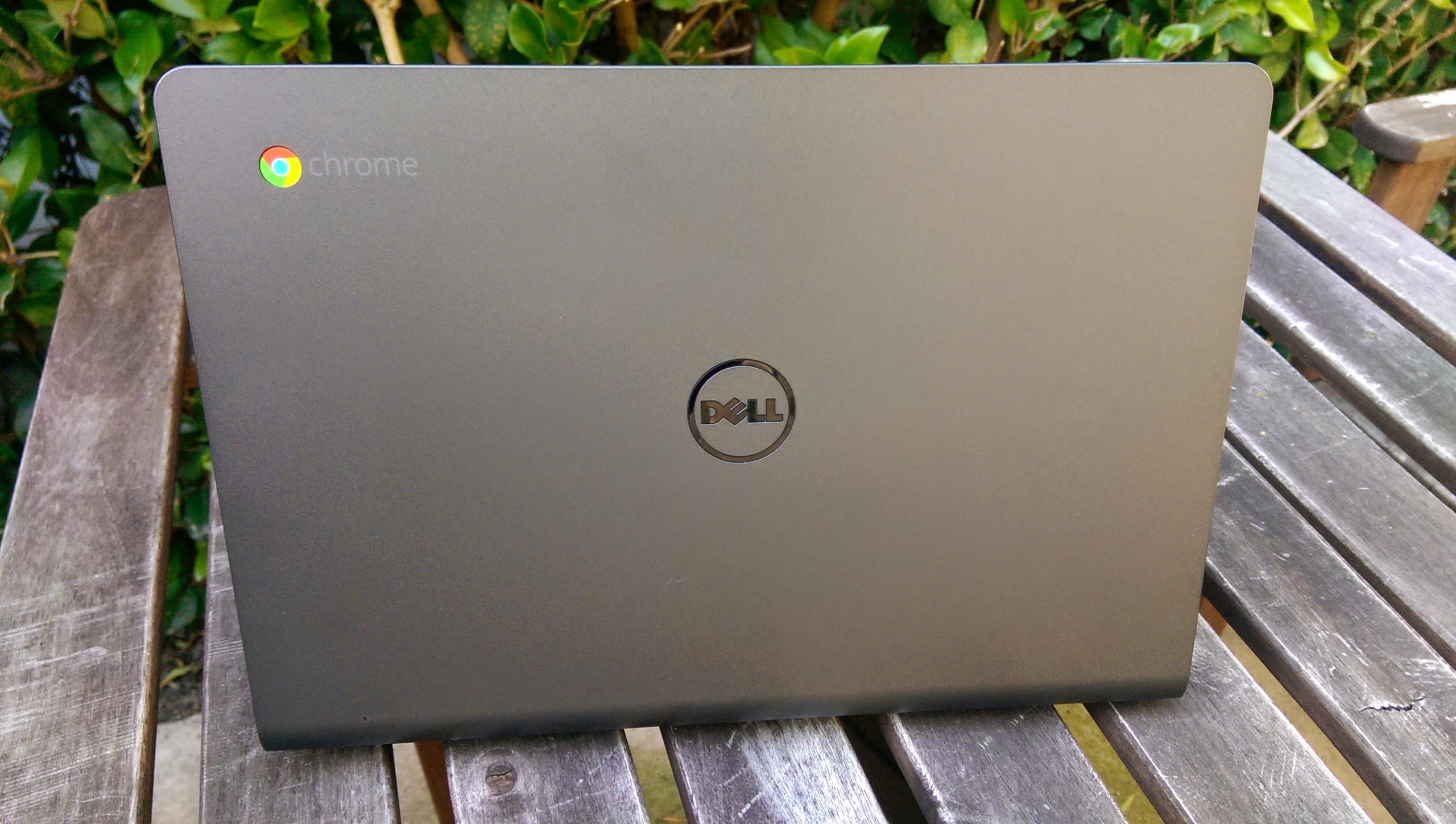
Dell Chromebook 11 review
Chromebook represents a philosophical change -- a quiet revolution -- in personal computing, where relevance moves from hardware and software to electrical service-like cloud utility. In this brave new world, Chromebook is an appliance meeting most desktop needs, and pricing is closer to microwave ovens than to traditional PCs.
Nowhere is there more receptiveness to adaptation, or willingness to lead technological revolution, than the education market. There is historical precedent and fortunate timing: Chromebook fits neatly. Cost is low, utility is high, and familiarity is great. What is more natural to Millennial students than the web browser? They are accustomed to breathing the cloud's rarefied air and enjoying the benefits of anytime, anywhere computing -- freedom to float. Dell Chromebook 11 is primed for educational use while, unlike Lenovo's model, being easily purchased by anyone. This review addresses the computer's suitability for students, teachers, or you.
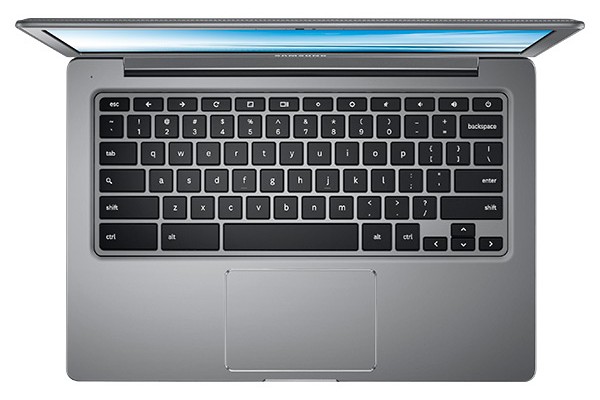
Samsung Chromebook 2 is delayed
Sorry, but I can't tell you why yet. I have this statement from Samsung PR about 13.3-inch Chromebook 2, in response to my inquiry: "The product is now shipping at the end of May". That puts the computer in the channel a month later than planned. I have asked for a reason but don't expect to get one.
Samsung unveiled Chromebook 2 in March, in 11.6- and 13.3-inch configurations. The company started taking preorders more than two weeks ago, offering a free case to anyone purchasing before April 27. I ordered one on April 8 from Amazon with delivery date of April 29, which put expected launch a day earlier. But then on April 10, Amazon emailed that my new delivery date would be May 2 and the website indicated availability on the 1st. Last week, Amazon changed the date to May 15 and by the beginning of this week to May 29. Around the same time, Samsung stopped taking preorders of this model and the 11.6-inch white. The manufacturer still accepts preorders on the black, smaller Chromebook, for which Amazon lists May 7 release.

Microsoft Office comes to Google's Chrome OS -- now who's Scroogled?
What was once the crown jewel of software, Microsoft Office, has arguably been devalued by free offerings. It used to be that when you bought a computer, you pretty much had to buy Office too. Sure, some people got by with the low-rent Works package, but that was not the same. Let's be honest though, most home users only ever used Word, so for these users, many features and programs were for naught.
Unfortunately, the gravy train of overselling home customers has dried up for Microsoft. Don't get me wrong, Microsoft Office is still the best choice for many large businesses. However, many home users can get by without it, thanks to Google Docs and the like. It is up to Microsoft to keep it relevant and desirable. The company is actually doing a good job in this regard, by releasing it for iPad and making it affordable with a 365 subscription. Today, the company does the unthinkable and publishes Office Online to the Chrome Web Store.

As Windows XP expires, Google urges Chromebook adoption
Support for Windows XP comes to an end today. Despite that, there are still a fair number of customers continuing to run the aging operating system. While those customers may be a bit sad about the demise, not everyone is.
On the heels of my colleague Joe Wilcox touting Chromebook, Google does the same. The company is taking advantage of this situation to lure current Windows XP users over to its Chromebook platform. In fact, the search giant is using the company's own PR against it, stating "even Microsoft admits: it's time for a change". That statement is followed by an image of an aged computer, complete with CRT monitor.
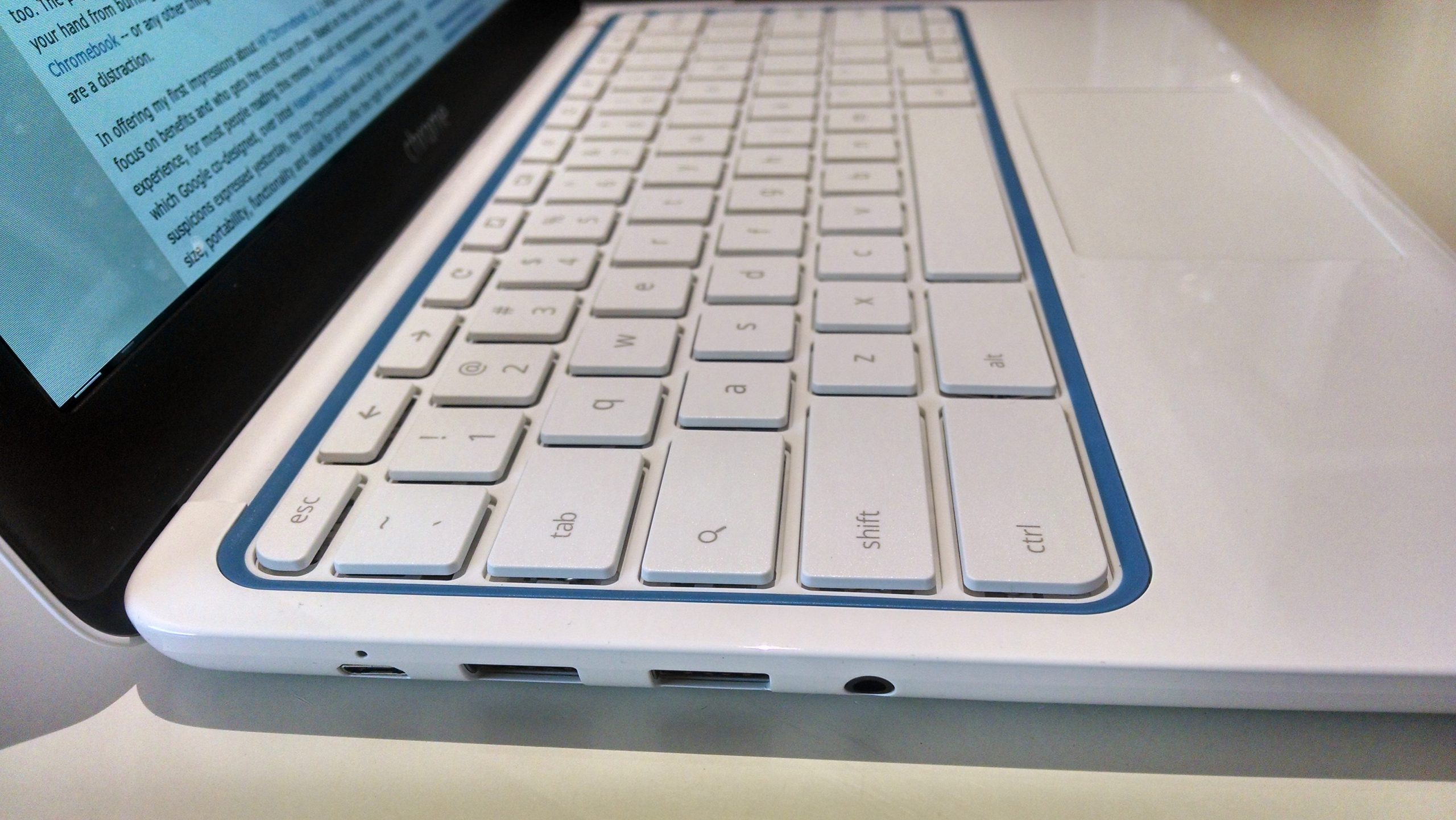
Hello, Chromebook!
Today Mihaita Bamburic bids "Goodbye, Windows XP!" Meanwhile, Wayne Williams walks down eXPerience memory lane. For good reason: This week, Microsoft pulls the life support plug -- following many, many, many delays. Henceforth, you use XP at your own risk, or forcibly march forward into the second decade of the 21st Century. You could follow Microsoft to Windows 8.1, or be truly courageous. Mac or Linux laptop are options, or you could go Chromebook. Yeah, you read right.
Here in the United States, Best Buy will trade in your XP clunker and give "minimum of $100 toward the purchase of a new Windows computer, Apple computer or Chromebook". The offer ends April 19, so hurry. The cash back will practically pay for a new Chromebook, which costs so little and does so much -- surely more than your XP wheezer. Someone from the Windows division once told me that O2, as in Oxygen, was one of the runner-up names for XP. How fitting. Your old machine has been living off oxygen for far too long. Pull the plug. I'll give you some reasons why Chromebook.
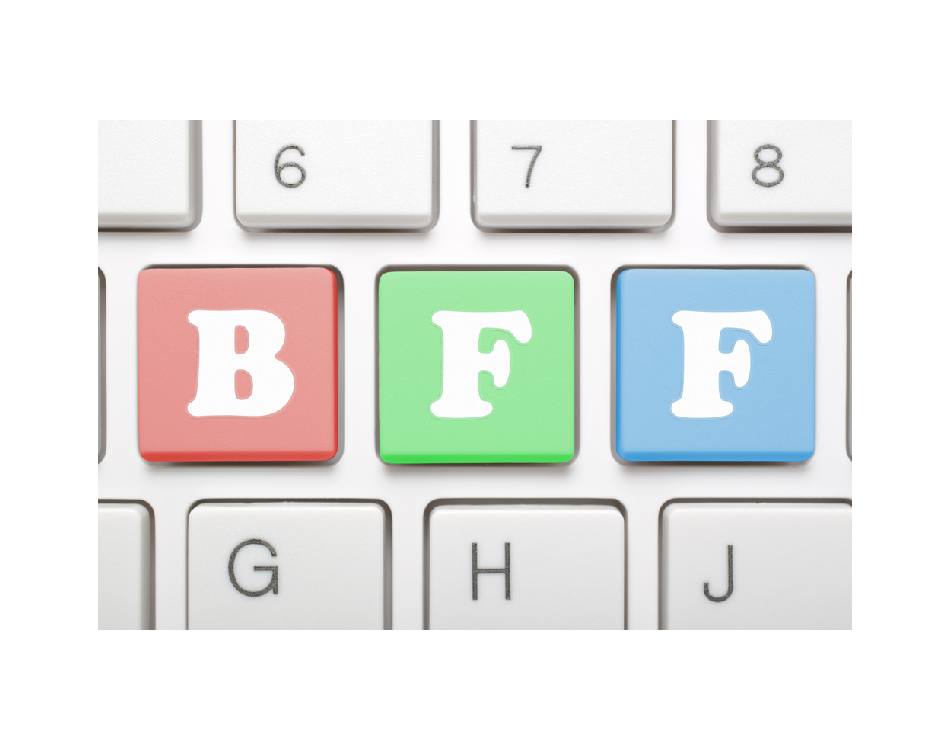
Microsoft and Dell still BFF -- sign patent licensing agreement for Android, Chrome and Xbox
Peanut butter and jelly. Fish and chips. Salt and pepper. Dell and Microsoft. These are all things that go great together. Sure, Dell has strayed a bit, offering things like laptops with Ubuntu and tablets with Android. However, Windows has been and will likely continue to be the manufacturer's bread and butter.
In the technology world, Dell and Microsoft are "BFF" -- best friends forever. If the companies were teen girls, they'd be braiding each other's hair and gossiping about boys. Today, Dell and Microsoft have signed a monumental patent agreement -- tantamount to BFF's exchanging friendship bracelets.

Google attacks Microsoft in the enterprise -- Cisco WebEx running on Chromebooks
Modern offices are not confined to one building. Many enterprises have offices scattered around the world. Not to mention, computers and the internet have afforded many employees the opportunity to work from home. This enables people to spend more time with their family -- something desperately needed in the USA nowadays, as people are working more hours than ever.
One of the most popular solutions for screen-sharing, communication and remote meetings is Cisco's Webex. Unfortunately, most businesses use the service on Windows machines -- Chromebooks are not supported. Well, at least they weren't -- today Google announces a proof-of-concept, which shows Webex running on Chrome OS. This is yet another instance of Google eating away at Microsoft's stronghold on the enterprise.

Google adds new monetization options for Chrome apps, extensions, and themes
Google has announced new monetization options for Chrome Web Store apps, extensions, and themes, giving developers a better chance of generating decent revenue from their offerings. The search giant has also introduced new tools and services that are meant to make it easier to automate the publishing process.
The new available monetization options depend on the type of Chrome software. In the case of themes, developers can only list them as paid. Meanwhile, extensions can also get a free trial, subscription and in-app payments. On top of upfront payments and subscriptions, packaged apps now offer a free trial and in-app payments, in the latest change to the Chrome Web Store.
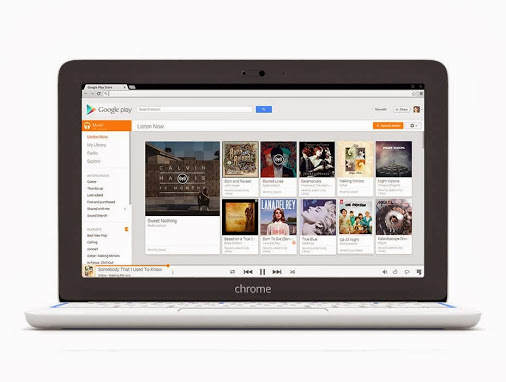
Chromebook users can grab a 60-day free trial of Google Music
I'm not going to rehash all of the reasons Microsoft has to show concern over rival Chrome OS, but now Google is providing one more to add to that list. It's not major, and likely won't sway someone's decision towards a Chromebook, but it heaps another straw onto the camel's back.
The search giant is offering a 60-day free trial of its Google Music All Access, which normally costs users $9.99 per month -- or $7.99 if you got in very early, as I did.
Chromebook belongs to computing's past, not its future
Early this evening, I exchanged emails with someone writing a blog post about Chromebook. He seeks sales numbers that I doubt are available. Success is a difficult measure despite the hype. In January post "The trouble with new Chromebooks" here and "Twenty-Fourteen isn't Year of the Chromebook" on my personal site, I raise questions about the computer's future.
I extend reservations in the text of my email reply, which follows.
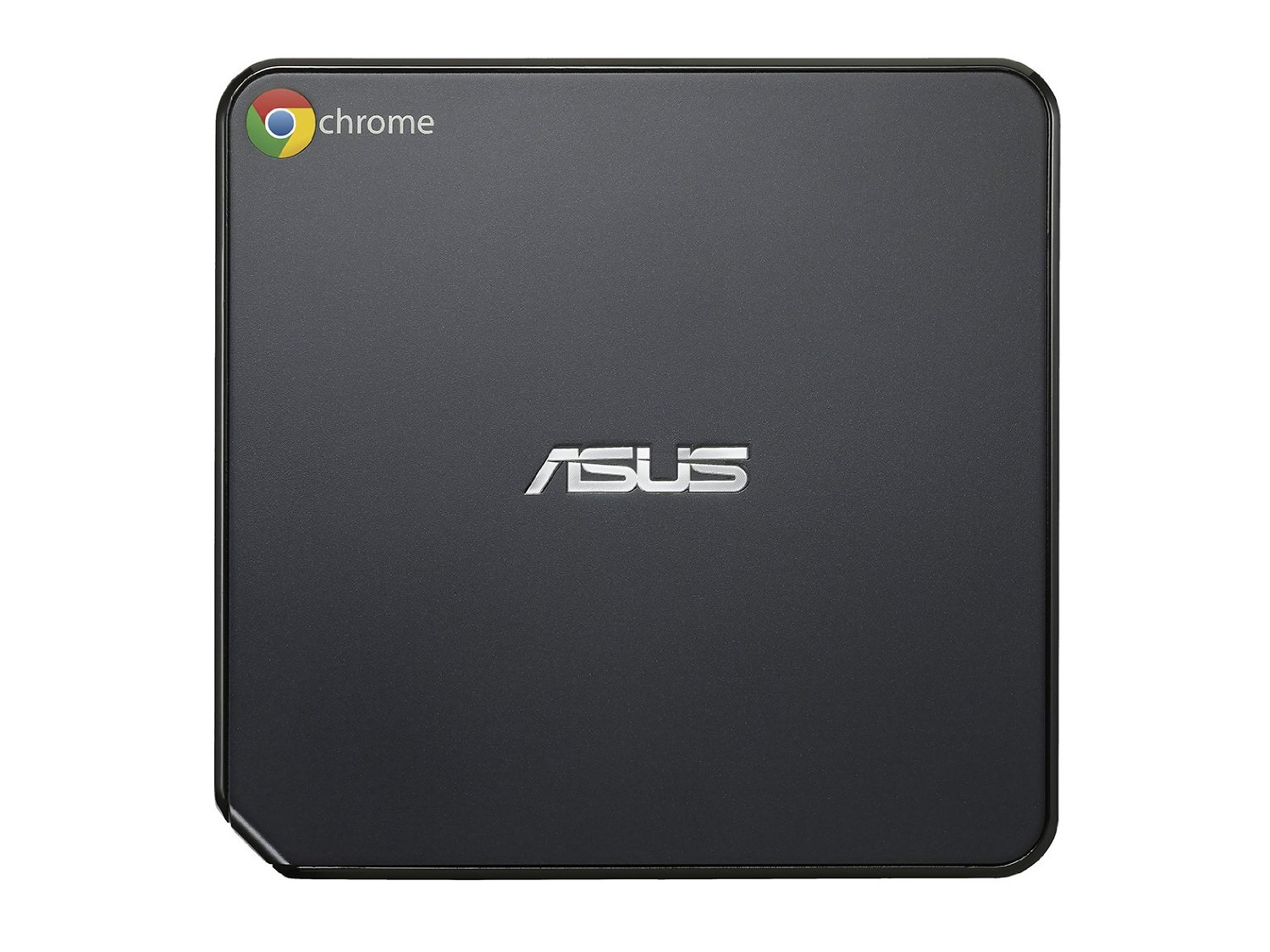
Asus Chromebox goes up for Amazon pre-order, get it for $179
It's already tough times in the Microsoft world, with Windows 8/8.1 under fire and the impending update coming under recent scrutiny for being, well, a mess, to put it much more politely than my colleague Mark Wilson worded things. If a bad time could go to worse then that would be rival Chrome OS invading the market.
While we largely think of these devices as low-priced notebooks, actual desktops are also getting into the game. Now the Asus Chromebox has hit pre-order in the US on the Amazon website.
